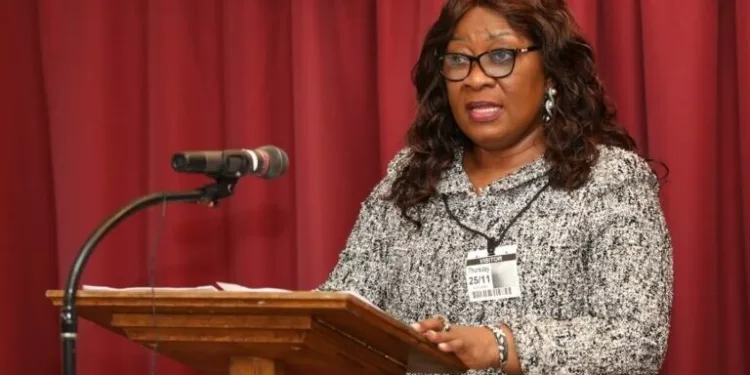Combating gender-based violence (GBV) and placing it at the core of its development agenda will help Nigeria meet the growth challenges of the 21st century, industrialist and philanthropist, Dr Seinye Lulu-Briggs has said.
Citing a World Bank report that states countries can only meet the development challenges of the 21st century with the full and equal participation of all male and female citizens, the philanthropist said, reducing gender-based violence has to become a priority if Nigeria wants to meet her targets.
Dr Lulu-Briggs was the guest speaker at the African Women Lawyers Association (AWLA), Rivers State branch event commemorating the 2023 Pan African Women’s Day and 16 Days of Activism to end gender-based violence in Port Harcourt on Wednesday, October 25.
At the event themed ‘African Women in the 21st Century: Challenges and Prospects’, where her NGO, the O.B. Lulu-Briggs Foundation, received a Distinction Award for protecting the rights of women and children and selfless service to humanity, Dr Lulu-Briggs reiterated that empowering and liberating women is essential for unlocking Nigeria and Africa’s immense potential.
She said: “Gender-based violence is among African women’s most vexing challenges in the 21st century. During the COVID-19 pandemic, rates of gender-based violence increased across the world. In Africa, the pandemic eroded women’s and girls’ hard-won accumulation of human capital, voice, agency and economic empowerment built over international development concerted efforts over the past three decades.”
Dr Lulu-Briggs lamented that despite most African countries ratifying the African Charter on Human and Peoples’ Rights, the African Union’s Protocol to the African Charter on Human and Peoples’ Rights on the Rights of Women in Africa, and the Convention on the Elimination of All Forms of Discrimination against Women, they have not translated into widespread improvements in the lives of African women.
“African women face challenges accessing land, credit, education, and healthcare. Gender-based violence remains alarmingly prevalent, with significant economic costs,” she said.
The Chairman of the O.B. Lulu-Briggs Foundation noted further that, “In Africa, the prevalence of intimate partner violence ranges from 10% to nearly 40%, some of the highest rates in the world. In Nigeria, one in three women has experienced domestic violence, physical, mental and sexual assault, forced and/or early marriages, and female genital mutilation by age 15.”
The guest speaker shared her unpleasant widowhood experiences and said widows should not be “invisible and at the mercy of ‘the patriarchy’ and ‘harmful cultural practices and traditions.”
She said her harrowing, protracted and unpleasant ordeal gave her a deeper understanding of African women’s undue suffering and pain in the 21st century because of their gender. It further fuelled her passion for assisting vulnerable women.



